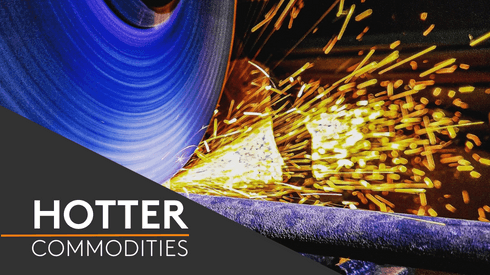Chinese makers have been following this practise for years. But since his election victory in November, Trump has threatened to increase tariffs on automotive imports from Mexico, trade sources told Fastmarkets.
In the first three quarters of 2024, Mexico imported 353,416 units of fully manufactured vehicles from China, a volume only exceeded by Russia. The country was also the second-largest importer of Chinese vehicles last year.
Total automotive imports from China into Mexico reached 415,000 units in 2023, a figure that has been increasing for five years, according to the China Association of Automobile Manufacturers (CAAM).
Sales by carmakers BYD, JAC Group, Geely and other Chinese brands in Mexico totalled 129,329,000 units in 2023, up by 63% year on year, according to Mexican institutes INEGI and AMDA.
“China became Mexico’s largest auto importer in 2023. Vehicles from China account for 30% of Mexico’s total auto imports, and Chinese auto brands take nearly 20% of Mexico’s market share,” an industry analyst said.
SAIC Motor, Chery and JAC Group were the three best-performing Chinese automakers in Mexico. SAIC’s MG brand entered the top 10 sales list in Mexico last year, with sales exceeding 60,000 units, according to MG.
Both SAIC Motor and BYD also revealed plans to build manufacturing plants in Mexico this year.
BYD will invest $600 million into building a new energy vehicle (NEV) production plant in Mexico with capacity for 150,000 units per year, it said. The company said recently that it expected sales of electric vehicles in Mexico to reach 50,000 units in 2024.
Volvo, which is majority-owned by Chinese company Geely, announced in October that it will build a $700 million truck manufacturing plant in Mexico’s northeastern city of Monterrey.
JAC Group started localized manufacturing in Mexico as early as 2017, in cooperation with Mexico’s Giant Motors.
Risks and opportunities
“Since Trump announced increased tariffs [to be applied to] imports from China, many Chinese producers have been exporting materials and components to Mexico to be assembled into fully manufactured products, which will show Mexico as the place of origin if they are exported into the US,” an industry analyst said.
Mexico’s free trade agreements make it a desirable destination for foreign capital to set up localized manufacturing capabilities.
Mexico received $36 billion of foreign direct investment in 2023, a 27% increase over the previous year. Such investment totalled $31 billion from January to August this year, a record high, according to Mexico’s Ministry of Economy.
About 80% of cars manufactured in Mexico go to export, with the US being the principal destination, trade sources told Fastmarkets.
In 2023, Mexico overtook China as the biggest importer of goods into the US for the first time since 2002. The value of Mexican imports into the US totaled $475.6 billion in 2023, up by $20 billion, 5%, from the figure in 2022. Imports from China to the US were worth $427.2 billion, falling by more than $110 billion, 20%, according to data from the US Department of Commerce.
But market sources said that, with Trump threatening to impose a 100% tariff on vehicle imports from Mexico, it was difficult to see whether Mexico would remain an ideal channel for Chinese producers seeking to enter the US market.
Elon Musk, chief executive officer of electric car-maker Tesla, announced a pause in operations at Tesla’s factory in Monterrey, Mexico, and said that instead the company would increase production at its existing plants in California and Texas.
Despite the expected challenges, trade sources told Fastmarkets that the South American market still had huge potential.
Brazil, alongside Belgium, has been the top destinations for China’s NEV exports.
The Brazilian NEV market boomed in 2024 and has huge potential for future growth, in terms of sales and manufacturing, Sun Xiaohong of CCCME (China Chamber of Commerce for Import and Export of Machinery and Electronic Products) said at an industry conference this month.
Major Chinese automakers such as BYD, Great Wall Motor and Chery Automobile have all announced production plans in Brazil.
BYD said that it was building manufacturing assets in the eastern state of Bahia with capacity for 150,000 units per year, expected to go into production in late 2024 or early 2025. And according to a company statement, the plants will also process lithium and iron phosphate for the global electric vehicle market.
Discover how the 2024 US election is impacting and could impact US and global commodity markets with Fastmarkets. Head to our US election hub.






